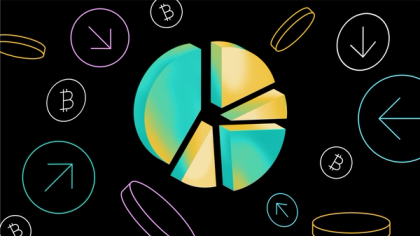Bitcoin Knowledge and Perceptions: Chapter II

In early 2023, Block, Inc. (formerly Square, Inc.) partnered with Wakefield Research for a second global bitcoin survey, following up on our report from a year ago. This time we surveyed 6,600 people in 15 countries around the world, with most of those countries the same as in our previous survey. It's clear that the past year’s events have affected how people see and use bitcoin. In the second chapter of our Bitcoin Knowledge & Perceptions report, we sought to examine the dynamics driving bitcoin developments and provide a resource for policymakers and other stakeholders to better understand how and why people embrace or avoid the decentralized currency.

A Year and Some Change
Similar to our findings in 2022, in 2023 people remain more optimistic than pessimistic about bitcoin's future, despite a turbulent year. Those who remain optimistic clearly see bitcoin’s utility beyond just a means to make speculative investments and have begun integrating it into their everyday lives.
“People remain more optimistic than pessimistic about bitcoin’s future.”
55% of respondents said they would opt for privacy over functionality
Online Privacy and Security
Several factors seem to inform peoples’ perceptions of privacy, bitcoin, and the ecosystem of services built around bitcoin. These include respondents’ degree of tech use, experience with banking system services and their shortcomings, and exposure to fraud and data privacy breaches. But generally speaking, knowledge and concern about privacy issues seem to come with more use and reliance on tech conveniences and the accompanying increase in touch points with the economy.

Self-Custody and Owning Your Money
Regarding that ecosystem of products and services built around bitcoin, a majority of respondents globally have at least heard of self-custody wallets. However, the relationship between familiarity with self-custody wallets and negative experiences, like banking nuisances or outright fraud and scams, remains more nuanced.
“Online attack or scam victims are 75% more likely to withhold PID information than non-victims”
60% of people who have experienced theft from a bank account are more likely to rely on physical documents.
So far, we have found a much more direct relationship between the ubiquity of tech tools and familiarity with self-custody wallets. However, the relationship between familiarity with self-custody wallets and negative experiences, like banking nuisances or outright fraud and scams, remains more nuanced. With the increased conveniences of tech come both the good and bad of increased touch points with the digital world and the economy — more convenience and better services, but also more points of data exposure and more opportunities for bad actors to perpetrate scams or fraud. At the same time, and likely partially owing to increased tech literacy and the exposure that comes with tech use, the most tech-curious and tech-engaged people also tend to be more optimistic about bitcoin’s future and the products and services built around it, including self-custody wallets. But they aren’t the only ones who are optimistic about bitcoin, as we’ll see in the next section.

86.8% of adults who own bitcoin are part of a household that regularly sends or receives remittances.
Bitcoin and the Promise of a Better Remittance Infrastructure
Evidence suggests utility-oriented use cases may soon outstrip curiosity as a driving factor in bitcoin experimentation and adoption. The survey results indicate a strong relationship between bitcoin interest and households participating in the remittance economy. This makes sense, as bitcoin and the products and services built around it offer attractive alternatives to traditional and more expensive routes for sending money to family or friends living abroad.
Here again, we see the tension between convenience and privacy — those who engage in remittances seem more concerned with protecting their data and identity online. While many respondents valued convenience and the benefits of sharing personal data with service providers, they were keenly aware of how much and how often they sacrificed privacy for that convenience.

A Checkered Policy Landscape
In today’s global economy, bitcoin, its custodial nature (whether by third party or oneself), and privacy features are receiving more and more interest. Individuals and businesses seek an increasingly open and global economy while protecting their finances from worldwide financial and political instability. Government responses have run the gamut from outright bans in China to cautiously open approaches, like those of Argentina and some Western economies.
In early 2023, Block, Inc. (formerly Square, Inc.) partnered with Wakefield Research for a second global bitcoin survey, following up on our report from a year ago. This time we surveyed 6,600 people in 15 countries around the world, with most of those countries the same as in our previous survey. It's clear that the past year’s events have affected how people see and use bitcoin. In the second chapter of our Bitcoin Knowledge & Perceptions report, we sought to examine the dynamics driving bitcoin developments and provide a resource for policymakers and other stakeholders to better understand how and why people embrace or avoid the decentralized currency.

A Year and Some Change
Similar to our findings in 2022, in 2023 people remain more optimistic than pessimistic about bitcoin's future, despite a turbulent year. Those who remain optimistic clearly see bitcoin’s utility beyond just a means to make speculative investments and have begun integrating it into their everyday lives.
“People remain more optimistic than pessimistic about bitcoin’s future.”
55% of respondents said they would opt for privacy over functionality
Online Privacy and Security
Several factors seem to inform peoples’ perceptions of privacy, bitcoin, and the ecosystem of services built around bitcoin. These include respondents’ degree of tech use, experience with banking system services and their shortcomings, and exposure to fraud and data privacy breaches. But generally speaking, knowledge and concern about privacy issues seem to come with more use and reliance on tech conveniences and the accompanying increase in touch points with the economy.

Self-Custody and Owning Your Money
Regarding that ecosystem of products and services built around bitcoin, a majority of respondents globally have at least heard of self-custody wallets. However, the relationship between familiarity with self-custody wallets and negative experiences, like banking nuisances or outright fraud and scams, remains more nuanced.
“Online attack or scam victims are 75% more likely to withhold PID information than non-victims”
60% of people who have experienced theft from a bank account are more likely to rely on physical documents.
So far, we have found a much more direct relationship between the ubiquity of tech tools and familiarity with self-custody wallets. However, the relationship between familiarity with self-custody wallets and negative experiences, like banking nuisances or outright fraud and scams, remains more nuanced. With the increased conveniences of tech come both the good and bad of increased touch points with the digital world and the economy — more convenience and better services, but also more points of data exposure and more opportunities for bad actors to perpetrate scams or fraud. At the same time, and likely partially owing to increased tech literacy and the exposure that comes with tech use, the most tech-curious and tech-engaged people also tend to be more optimistic about bitcoin’s future and the products and services built around it, including self-custody wallets. But they aren’t the only ones who are optimistic about bitcoin, as we’ll see in the next section.

86.8% of adults who own bitcoin are part of a household that regularly sends or receives remittances.
Bitcoin and the Promise of a Better Remittance Infrastructure
Evidence suggests utility-oriented use cases may soon outstrip curiosity as a driving factor in bitcoin experimentation and adoption. The survey results indicate a strong relationship between bitcoin interest and households participating in the remittance economy. This makes sense, as bitcoin and the products and services built around it offer attractive alternatives to traditional and more expensive routes for sending money to family or friends living abroad.
Here again, we see the tension between convenience and privacy — those who engage in remittances seem more concerned with protecting their data and identity online. While many respondents valued convenience and the benefits of sharing personal data with service providers, they were keenly aware of how much and how often they sacrificed privacy for that convenience.

A Checkered Policy Landscape
In today’s global economy, bitcoin, its custodial nature (whether by third party or oneself), and privacy features are receiving more and more interest. Individuals and businesses seek an increasingly open and global economy while protecting their finances from worldwide financial and political instability. Government responses have run the gamut from outright bans in China to cautiously open approaches, like those of Argentina and some Western economies.